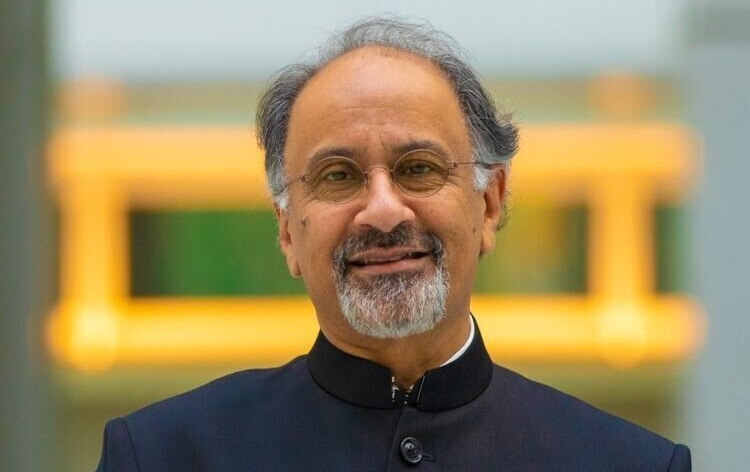The World Bank Group has urged the Nigerian government to redirect its oil wealth to benefit all citizens, not just the elite.
Addressing the current economic challenges, Indermit Gill, the Chief Economist and Vice President of the World Bank stated that the suffering is widespread in Nigeria, with children and young people bearing the brunt of inflation, poor education, healthcare, and unemployment.
Mr Gill said Nigeria’s reforms from 2003 to 2007 were exactly what was needed to turn the economy around, but they were not sustained. “During those four years, Nigeria implemented fiscal and exchange rate reforms. It introduced unprecedented transparency into the recording and allocation of oil revenues. It renegotiated its Paris Club debt, which had created this debt overhang that was choking the economy, and the payoff was immense and immediate.”
He lamented that the federal government’s fiscal, monetary, and exchange rate reforms are hurting everyone, especially ordinary Nigerians, who are struggling with high food and transportation prices.
“So, oil wealth should be used for the welfare of all Nigerians, as it has been used to benefit just the elite for too long. The elite are also being hurt by these reforms that started last year, but they have done very well in the past, and they have built substantial buffers. The ordinary Nigerians are being hurt even more.
They were affected much more by the policies of the past. They don’t have any buffers, so their welfare should be uppermost in our minds today,” Mr Gill remarked yesterday at the 30th Nigerian Economic Summit in Abuja.
“The government must do everything in its power to protect the most vulnerable citizens against hardships because their lives and the lives of Nigeria’s 110 million children depend on it, and it must stay the course of reform because Nigeria’s long-term future and the future of the 110 million children depend on it.”
He called on Nigerian policymakers to prioritise non-oil growth and ensure a competitive exchange rate, which Nigeria now has. He added that now is the best opportunity for the private sector to protect the poor and maintain competitiveness.
In his reaction, President Bola Tinubu, through Vice President Kashim Shettima, said his administration empathises with Nigerians but has only one option besides introducing tough economic reforms.
Shettima said Nigeria’s economic challenges are insignificant and manageable as long as the right policies are implemented. Speaking to the summit’s theme ‘Collaborative Action for Growth, Competitiveness, and Stability’ on Monday, the Vice President said, “Like many other nations, Nigeria has experienced significant economic problems over the past few years. The challenges have been global as well as domestic.”
Gill told the gathering at the Transcorp Hilton that the problems confronting the Nigerian economy today first surfaced more than 40 years ago when oil prices began collapsing in the early 1980s after the big oil boom of the 1970s. He blamed Nigeria’s current economic woes on poor fiscal and exchange rate policies.
The World Bank Vice President presented the Nigerian government with a seven-point agenda to build sustainable economic growth: “First, learn from your policy mistakes. Second, let markets determine the exchange rate. Third, keep public debt sustainable. Fourth, adopt world price-based fiscal rules. Fifth, make accounting and allocation of revenues fully, completely, and painfully transparent. Sixth, devise a public investment programme that promotes the diversification of the economy. And seventh, above all, this is the difference between the Norwegian experience and the Nigerian experience – stay the course.”
Earlier, the Minister of Budget and Economic Planning, Atiku Bagudu, stated that one of the immediate gains of the administration’s reforms “is increased revenue, which has improved funding for the three tiers and enhanced their ability to meet their obligations, including the payment of the new minimum wage.”
He said that between last year’s summit and today, the government had recorded a N2.17 trillion supplementary budget, a 2024 annual budget, and an amendment to the 2024 budget.
Speakers at the summit noted that Nigeria is again at a crossroads as it implements a far-reaching, politically difficult reform with national, regional, and global repercussions.
However, Gill emphasised that the current administration’s signature reforms must be sustained despite the pain to ensure an economic turnaround.
“Nigeria must stay the course for at least another 10 to 15 years to transform its economy. If it does that, it will become an engine of growth in Sub-Saharan Africa and help to transform the region.
“I hope Nigeria will thrive; the President’s signature reforms are essential to start that thriving process. They are crucial to breaking from the past and charting a more hopeful course for all Nigerians. These include the unification of what used to be multiple exchange rates, allowing that unified exchange rate to be determined by the market, and, of course, the elimination of fuel subsidies,” he stated.
The World Bank Chief also urged the Central Bank of Nigeria to stay focused on managing inflation and resist short-term capital inflows that might push up the naira’s value too quickly. “It should rebuild foreign exchange reserves as a cushion against oil price volatility,” he added.











